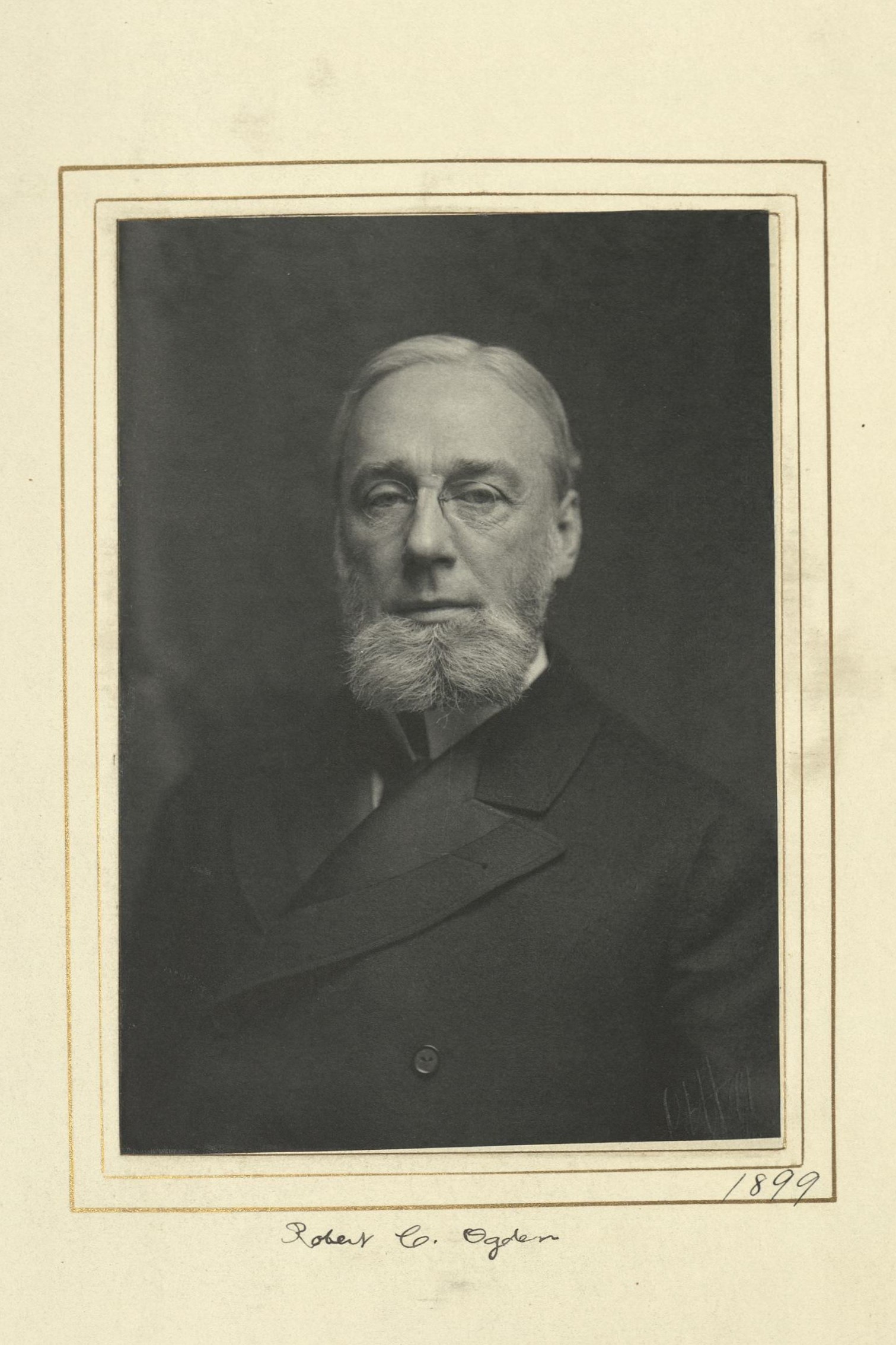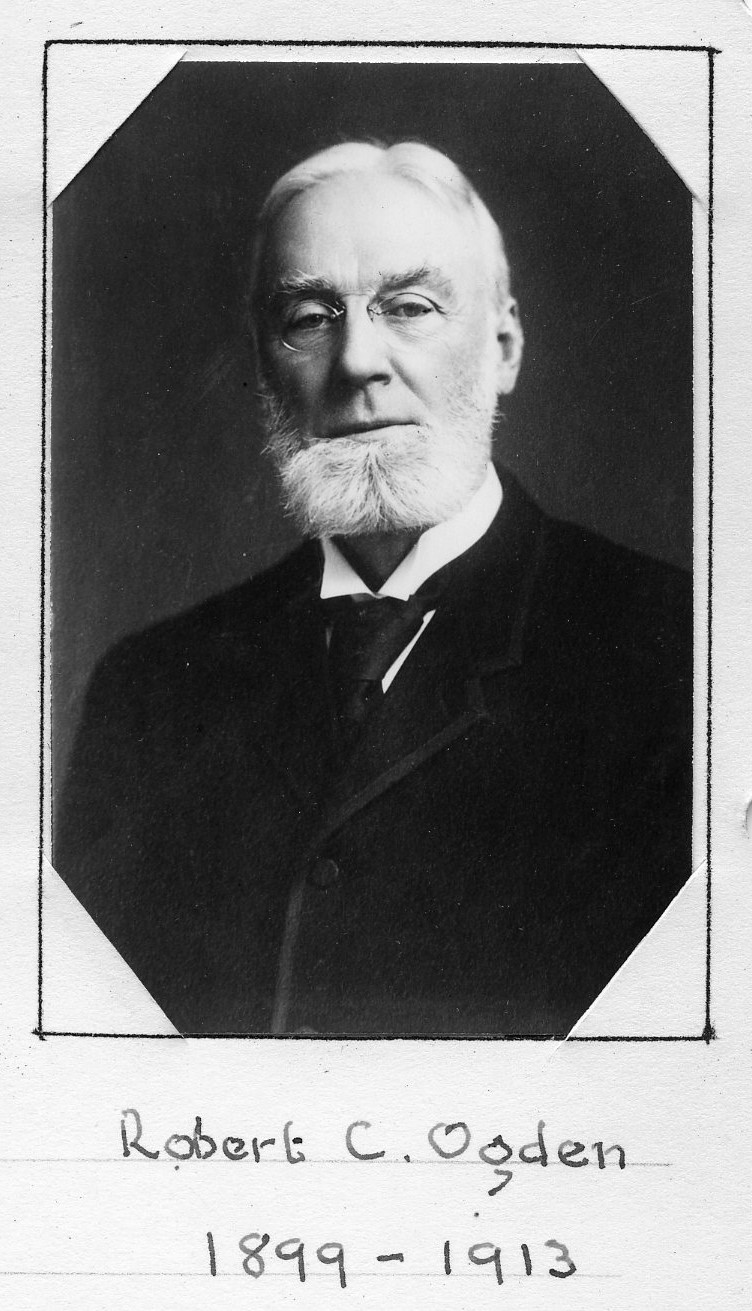Merchant
Centurion, 1899–1913
Born 10 June 1836 in Philadelphia, Pennsylvania
Died 6 August 1913 in Kennebunkport, Maine
Buried Hope Cemetery , Kennebunk, Maine
, Kennebunk, Maine
Proposed by William J. Schieffelin and Henry D. Noyes
Elected 4 November 1899 at age sixty-three
Proposer of:
Seconder of:
Century Memorial
Robert Curtis Ogden, whose indomitable modesty was equalled only by his intelligent benefactions, once expressed his moving convictions in these words: “Popular education is the greatest of all inventions, and commerce is the greatest science of the age.” He lived and labored under the power of this faith. With him, commerce was a large organizing and constructive art, which he industriously followed, and with such success as to force it to yield him the income which he used to further his other beneficent conviction. Probably no man did as much as he to foster and extend education throughout the Southern States. His interests embraced all grades of education. He pursued his purposes with sagacity and tact, energy, patience, self-effacement, and an open mind.
Mr. Ogden was a lifelong friend, and the biographer, of Gen. [Samuel C.] Armstrong, founder of the Hampton Institute, and in time he accepted the presidency of its Board of Trustees. But his labors were to reach beyond the range of this excellent foundation. For he soon became an important figure in the broadest educational movement in the South. He was a leader of the Capon Springs Conference in 1893, out of which grew the annual Southern Educational Conference, over which Mr. Ogden was so long and so efficiently to preside. Thither each year he brought from the North those prominent men and women who were interested in like fields, in order that there might be a beneficent interchange of views. A further result was the permanent organization of the Southern Education Board; while the General Education Board, with its immense endowment, was not uninfluenced by Mr. Ogden’s labors and example. Not the negro alone, but the whole great South has had no better friend.
Mr. Ogden’s energies also spent themselves in other ways. He was a soldier in the Civil War, and an officer of the New York National Guard, a member of the Johnstown Flood Relief Commission, a Trustee of the Russell Sage Foundation, and President of the Directors of the Union Theological Seminary in this city. It was appropriate that a wide range of ability, position, and excellence should be represented in the memorial meeting which was held in New York on October twenty-seventh in honor of his memory.
Henry Osborn Taylor
1914 Century Association Yearbook


